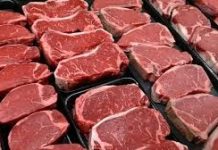By Muhammad Luqman
All the perennial canals in Pakistan’s central province of Punjab will remain closed from October 21 to 31 in a bid to conserve water for the sowing of staple crop of wheat scheduled to start from first week of November.
“ The closure is not going to affect the sowing of winter crops especially wheat as the canals will re-open from November 1,” a spokesman of Punjab’s Irrigation Department said.
The Indus River System Authority (IRSA), the regulator of water in Pakistan, has reduced water releases from country’s reservoirs — Tarbella and Mangla — by almost 20000 cusecs.
Keeping in view the water shortage in the country, provinces have evolved a contingency water utilization plan and Punjab has requested the IRSA for the closure of all its canals, except Thal and Upper Jhelum Canal for 10 days. Sindh has also reduced its intake from 55000 cusecs to 40000 cusecs. Punjab has reduced its intake to 26000 cusecs whereas it will get 6000 cusecs through Thal Canal while will receive the rest from Upper Jhelum Canal.
The IRSA has also decreased the release of water from Tarbella by 15000 cusecs from the earlier 55000 cusecs to 40000 cusecs while releases from Mangla were reduced by 5000 cusecs from 35000 cusecs to 30000 cusecs,.The water release from Mangla will be further reduced from the existing 30000 cusecs to 10000 cusecs by October 19 and the release from Tarbella will be decreased from 40000 to 30000 cusecs. The reduction in releases will also adversely affect the generation of hydel electricity.
Due to the dry season, the condition of water availability in the reservoirs and rivers has further deteriorated. The water shortage is caused by the less than anticipated flow in Jhelum and Kabul rivers and the early drawdown from the reservoirs. The water flows in Jhelum is considerably less from the anticipated flows while the river flows in River Kabul were also considerably lower than the anticipated flows.
IRSA will convene a meeting during the first week of November to ponder over the water situation in rivers and reservoirs and will upward revise the water shortage during Rabi season.















